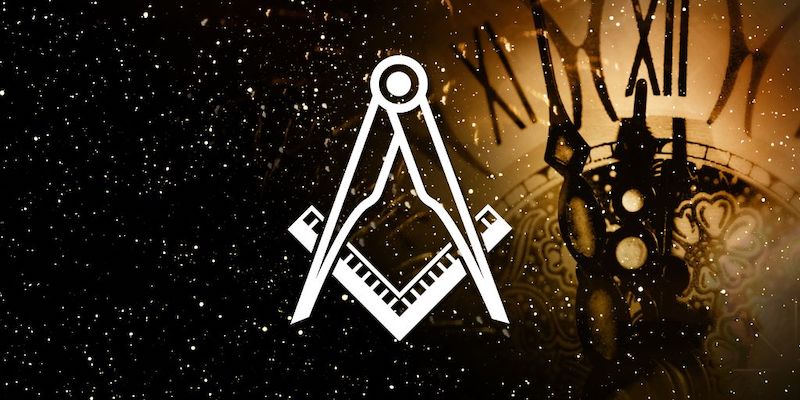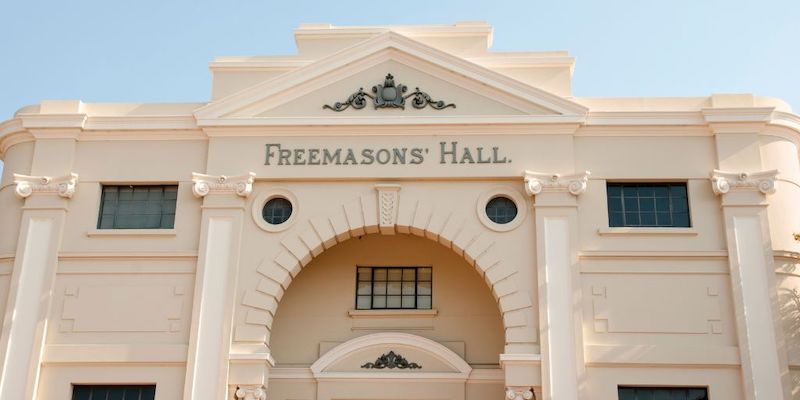For those interested in joining the ranks of the Freemasons, a common question often arises: how long does it take to become a Freemason?
Understanding the timeline and requirements for this process is essential for prospective members, as becoming a Freemason entails dedication, patience, and a genuine interest in this centuries-old fraternal organization.
The time it takes to become a Freemason can vary depending on several factors, such as the individual’s level of interest, their available time, and the specific lodge they are joining.
Generally, the process can take anywhere from a couple of months to over a year.
It typically starts with a waiting period of at least 45 days after submitting your application before hearing whether you have been accepted or not.
In some cases, it might take up to 3 or 4 months, or even longer, depending on the lodge’s activity and rules.
Once accepted, the process of becoming a Freemason can take an additional 6 to 18 months, again contingent on one’s interest, ability, and level of commitment.
This period involves completing degrees within the organization, learning rituals, and developing a deeper understanding of the principles and teachings of Freemasonry.

Becoming a Freemason
Becoming a Freemason is a process that requires patience and commitment.
The time it takes to complete the process can vary, but in general, it may take anywhere from six weeks to six months from when you submit your petition until you have finished your degrees.
Once the degree work begins, you may be asked to attend your lodge’s monthly meetings or social functions, and there is also some “homework” that needs to be completed during this period.
Eligibility Criteria
Freemasonry is open to men of every country, religion, race, age, income, education, and opinion.
However, there are specific eligibility requirements to join Freemasonry, which are:
- Being a male
- At least 18 years of age (the minimum age varies in some jurisdictions, sometimes up to 21)
Each jurisdiction might have its own specific eligibility requirements, so it’s important to research your local lodge for further information.
NB: There are some countries where Freemasonry is still banned.

The Application Process
The application process to become a Freemason consists of several steps that test the candidate’s dedication and commitment to the organization.
These steps may vary slightly from lodge to lodge, but generally consist of the following:
- Finding and contacting a local Masonic lodge
- Submitting a petition for membership
- Waiting for approval, which can take 15 to 30 days
- Completing degree work and attending lodge meetings
While the length of time it takes to become a Freemason varies depending on the individual and the lodge, candidates can generally expect to wait at least ~30 days before hearing whether they’ve been accepted.
In some cases, depending on the lodge’s rules and its level of activity, the waiting period might be shorter or perhaps even extend to several months.
Timeline to Join Freemasonry
Joining Freemasonry is a gradual process that can take up to six months.
In this section, we will discuss the steps and time frame for becoming a Freemason, broken down into sub-sections:
- Petition and Sponsorship
- Investigation and Interviews, and
- Balloting and Initiation.
Petition and Sponsorship
Becoming a Mason starts with submitting a petition to a local lodge.
This step typically takes around six weeks to six months, depending on the lodge’s schedule and your availability.
You will also need to find a sponsor, a current Mason, who can vouch for your character and recommend you for membership.
Building a relationship with potential sponsors can take varying amounts of time.
After submitting your petition, there is a waiting period of at least 45 days to hear whether you’ve been accepted. In practice, the wait can be three to four months, or even longer, depending on the lodge’s busyness and rules (source).
Investigation and Interviews
Once your petition is accepted, an investigation committee will be formed to delve deeper into your background and character.
This process usually involves interviews with the candidate, their family, and their references to ensure that they meet the qualifications and values of Freemasonry.
The duration of the investigation period varies depending on the lodge and the individual candidate.
Balloting and Initiation
After the investigation is completed, your application will be presented to the lodge members for a vote.
If you receive the necessary favorable votes, you will then undergo an initiation ceremony.
Freemasonry has three degrees:
- Entered Apprentice (EA),
- Fellowcraft (FC), and
- Master Mason (MM).
Achieving these degrees can take months or years, but once a man has taken his first obligation as an Entered Apprentice, he is considered a Freemason.
In summary, the process to become a Freemason includes petitioning, obtaining sponsorship, undergoing an investigation, being voted on, and participating in initiation ceremonies.
The time frame for completing these steps can vary greatly based on the lodge’s schedule, the candidate’s background, and their dedication to advancing through the degrees.
Advancement Through Degrees

In Freemasonry, there are three main degrees that members progress through, representing different stages of life and personal development.
First Degree: Entered Apprentice
Becoming an Entered Apprentice is the first step in the journey toward Freemasonry.
This stage of the process takes approximately 2 to 4 months, during which you can expect to wait for at least 45 days before hearing whether you have been accepted into the lodge [source].
After your acceptance, you will receive the Entered Apprentice degree, which focuses on the basic lessons of belief in God, charity, truth, and maintaining one’s word [source].
Second Degree: Fellowcraft
Advancing to the Fellowcraft degree requires successful completion of the Entered Apprentice degree and a minimum wait of 28 days between degrees [source].
This time frame may vary depending on your proficiency in memory work and your lodge’s schedule.
The Fellowcraft degree builds upon the lessons learned in the Entered Apprentice degree and represents manhood.
Third Degree: Master Mason
To become a Master Mason, one must pass through the Fellowcraft degree and continue to work diligently for a potentially longer period than previous degrees.
Once you have attained the status of Master Mason, you will have access to additional privileges, such as the ability to vote on matters within your lodge [source].
The Master Mason degree symbolizes the age and completion of the individual’s journey through the initial degrees of Freemasonry.
Some Factors Affecting the Timeframe
The time it takes to become a Freemason can vary significantly depending on several factors.
This section will discuss the role of individual commitment, lodge workload, and schedule in the process.
Individual Commitment
An important factor contributing to the timeframe of becoming a Freemason is the individual’s commitment and availability.
The process can take anywhere from six to 18 months and is dependent on the person’s level of interest, ability, and time commitment.
Candidates with more dedication and available time can potentially complete the process sooner than others who may have limited time for lodge activities.
Lodge Workload and Schedule
Another factor affecting the timeframe is the workload and schedule of the specific lodge a candidate has joined.
The time it takes to complete the required degrees can range from six weeks to six months from when the petition is submitted.
Lodge schedules and their availability to conduct degree work and related activities can impact this timeline.
Additionally, the candidate may need to attend monthly meetings or social functions during this period, which could influence the overall duration of becoming a Freemason.
In summary, the duration it takes to become a Freemason can vary depending on an individual’s level of interest, ability, and commitment.
Generally, it may take anywhere from 45 days to 18 months to progress through the process of joining, but this depends on many factors, and the timing could be drastically different for your lodge.
As a candidate, understanding the lodge rules and their specific requirements can help you estimate the expected time more accurately.
The process might take less time for someone who puts in more effort; however, external factors like the lodge’s schedule and how involved the candidate gets could also influence the duration.
Remember, the journey to becoming a Freemason is enriched through the bonds formed, the personal development experienced, and the values instilled in members throughout their involvement so don’t try to rush it.
Thus, focusing on the quality of this journey rather than the time it takes to complete can lead to a more fulfilling and meaningful experience.